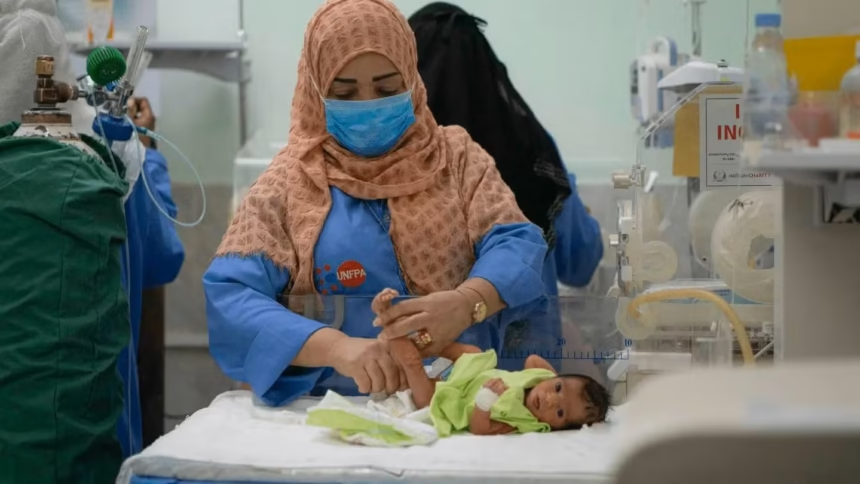Introduction
Nigeria tragically holds the grim distinction as the world’s most dangerous country to give birth, with one woman dying every seven minutes during childbirth or shortly after maternal death crisis. Despite medical advances globally, Nigeria’s maternal mortality rate remains alarmingly high due to a combination of healthcare strikes, insufficient resources, and systemic challenges. This blog explores the causes behind Nigeria’s maternal death crisis, personal stories illustrating the human cost, and ongoing efforts to address the situation.
The Dire Reality Behind Nigeria’s Maternal Mortality Rate
According to UNICEF’s latest estimates, Nigeria accounts for nearly 29% of global maternal deaths, with approximately 75,000 women dying annually during childbirth. This equates to one death every seven minutes — a staggering statistic that reveals systemic failures in maternal healthcare.

The leading causes of death include postpartum hemorrhage (excessive bleeding after delivery), obstructed labor, high blood pressure, and unsafe abortions. Many of these deaths are preventable with timely medical intervention and adequate resources.
Personal Stories Highlighting the Crisis
Nafisa Salahu’s story from Kano state is one of survival against overwhelming odds. Labouring for three days during a doctors’ strike, she received no expert help until a Caesarean section was performed, but tragically, her baby did not survive. Sadly, such stories are common across Nigeria.
Chinenye Nweze’s death five years ago after severe bleeding and lack of available blood at a hospital exemplifies the resource shortages affecting maternal care. Her brother, Henry Edeh, recalls the pain of losing both a sister and a close friend due to preventable causes.
Key Factors Behind Nigeria’s Maternal Death Crisis
- Poor Healthcare Infrastructure: Many facilities lack basic equipment and trained personnel necessary to manage complicated births.
- Staff Shortages and Strikes: Frequent healthcare worker strikes and shortages leave hospitals understaffed, especially in rural areas.
- Financial Barriers: High costs of treatment discourage women from seeking professional care, especially in private hospitals.
- Cultural Beliefs and Mistrust: Distrust of medical professionals and reliance on traditional remedies delay crucial care.
- Insecurity and Transportation Issues: Reaching healthcare facilities can be nearly impossible in conflict-affected or remote areas.

Government and NGO Efforts to Combat Maternal Deaths
Recognizing the crisis, the Nigerian government launched the Maternal Mortality Reduction Innovation Initiative (Mamii) in 2024. This pilot targets high-risk areas to identify pregnant women, track their health status, and connect them with medical services, including antenatal care and emergency transport.
UNICEF Nigeria and local organizations also support efforts to increase access to skilled birth attendants and improve healthcare quality.
What More Needs to Be Done?
Experts like UNICEF’s Martin Dohlsten emphasize that sustained funding, infrastructure improvements, and community engagement are critical to reducing Nigeria’s maternal mortality rate. Expanding health insurance and improving healthcare worker training can further save lives.
Women like Jamila Ishaq, who experienced labor complications without adequate hospital support, illustrate the ongoing trust gap in the public health system that must be addressed through transparency and accountability.
Conclusion
Nigeria’s maternal death crisis is a complex tragedy rooted in healthcare system weaknesses, socioeconomic barriers, and cultural factors. However, with coordinated efforts from the government, NGOs, and communities, significant progress is possible. Ensuring every woman has access to safe childbirth care is not just a health imperative — it is a fundamental human right.
To learn more about improving healthcare infrastructure in Africa and how it impacts maternal health, check out our related article. Together, awareness and action can help turn the tide on maternal mortality in Nigeria and beyond.









